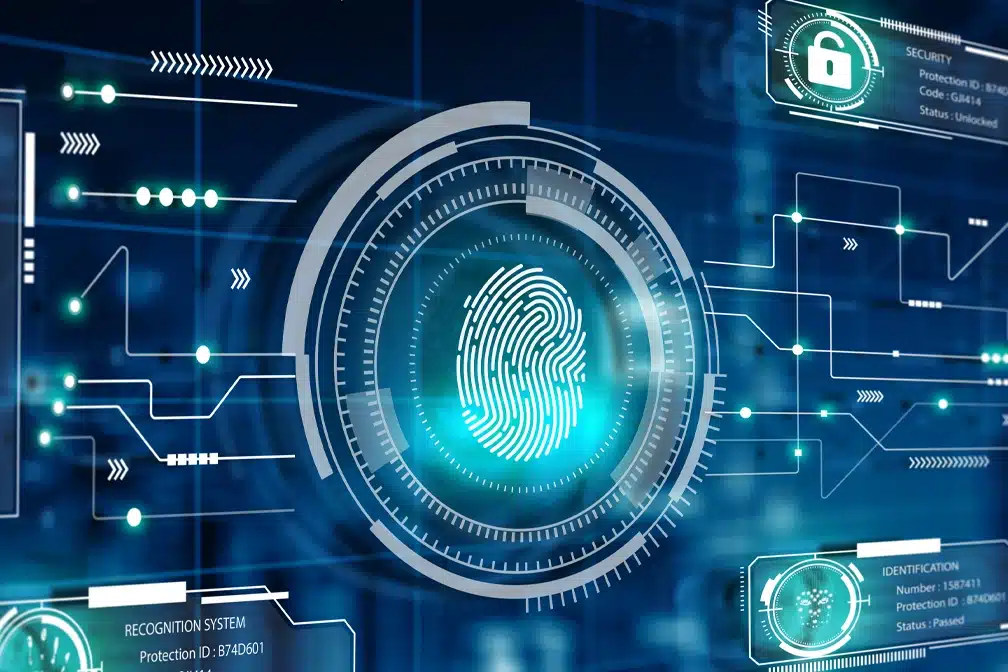April 2024 Truck and Warehouse Jobs shift, with trucking losing 300 jobs, and warehouses adding 7,600 jobs - highlighting industry volatility.
Continue Reading
May 19, 2024 8:39 pm

In a landmark legal settlement, a class action lawsuit between individuals represented by plaintiff Richard Rogers and BNSF Railway Company has reached a resolution, spotlighting the critical issue of biometric privacy under the Illinois Biometric Information Privacy Act (BIPA). This case, notable for its pioneering stance on biometric data litigation, underscores the evolving dialogue around privacy rights in the face of advancing technology.
Originating from allegations that BNSF Railway Company improperly utilized biometric data, specifically fingerprints, without requisite consent as mandated by BIPA, this lawsuit underscores the tension between technological convenience and individual privacy rights. At the heart of the dispute was BNSF’s Auto-Gate Systems in Illinois, which were accused of capturing and storing fingerprints of truck drivers and other individuals accessing BNSF facilities, purportedly without following BIPA’s stringent consent and notification protocols.
After extensive litigation, including a jury trial that initially found BNSF to have recklessly violated BIPA, leading to a substantial but later vacated damages award, the parties reached a settlement. Under this agreement, BNSF commits to creating a $75,000,000.00 non-reversionary fund aimed at compensating approximately 46,500 class members. This settlement not only marks a significant financial redress for the individuals affected but also signifies a pivotal shift in how BNSF handles biometric data, with the discontinuation of the practices in question at its Illinois facilities.
The legal journey to this settlement was complex and fraught with procedural intricacies, including extensive discovery, motion practice, and a jury trial that spotlighted the legal challenges inherent in biometric information privacy litigation. The case navigated through various legal hurdles, including issues of first impression and the vacating of a massive damages award, illustrating the unpredictable nature of pioneering legal disputes.
Achieving the settlement was no small feat; it involved multiple mediation sessions and rigorous negotiations, facilitated by experienced class counsel and the diligent oversight of Judge Matthew F. Kennelly. This process exemplifies the judicial system’s capacity to mediate and resolve disputes efficiently, even those involving novel and complex issues like biometric privacy.
This settlement serves as a crucial precedent in the realm of biometric information privacy, particularly under the auspices of Illinois’ BIPA. It highlights the paramount importance of obtaining explicit consent for the collection and use of biometric data and sets a benchmark for the adjudication of similar disputes. Furthermore, the case is a testament to the need for legal frameworks to evolve in tandem with technological advancements, ensuring the protection of privacy rights in an increasingly digital world.
The settlement between Richard Rogers and BNSF Railway Company provides not only immediate financial relief to those impacted but also fosters a greater respect for individual privacy rights. It offers a roadmap for resolving future disputes in this arena, emphasizing the legal system’s adaptability and the critical role of consent in the use of biometric data.
Moreover, the case illustrates the broader societal and legal challenges posed by biometric technologies. As these technologies become more integrated into everyday life, the need for clear legal standards and protections becomes increasingly apparent. This settlement, therefore, not only addresses the immediate concerns raised by the plaintiffs but also contributes to the ongoing discourse on privacy, consent, and technological innovation.
The settlement of this class action lawsuit marks a significant moment in the legal recognition and protection of biometric information privacy. It underscores the importance of legislative and judicial responsiveness to the challenges posed by technological advancements. As legal precedents like this one continue to shape the landscape, they pave the way for more informed, respectful, and secure handling of biometric data.
In conclusion, this case is a watershed moment for biometric privacy law, offering valuable lessons for corporations, legal practitioners, and individuals alike. It reaffirms the importance of consent and transparency in the use of personal data and highlights the critical role of the legal system in mediating the complex interplay between technology and privacy. As we move forward, the principles underscored by this settlement will undoubtedly influence the future direction of privacy law, ensuring that individual rights are safeguarded in the digital age.
April 2024 Truck and Warehouse Jobs shift, with trucking losing 300 jobs, and warehouses adding 7,600 jobs - highlighting industry volatility.
Continue ReadingBritish Columbia is taking a stand against commercial truck drivers who compromise the safety of the province's highways by hitting overpasses. This move is not just about
Continue ReadingAs we move through 2024, the trucking industry faces an unprecedented challenge with cargo theft reaching new heights. Experts forecast this year to mark a continuation of
Continue ReadingThe American Trucking Associations (ATA) has expressed strong opposition to the Department of Justice's proposed rule of marijuana reclassification.
Continue ReadingIn an effort to increase efficiency and sustainability in Trucking, Phillips Industries has launched their new, advanced, stick-on solar panels
Continue ReadingThe 2024 CVSA International Roadcheck is scheduled for May 14-16. Over 72 hours, inspectors across the US will conduct nearly
Continue ReadingAutomated License Plate Readers are a major advance in law enforcement technology but they raise significant privacy and oversight challenges.
Continue ReadingThe EPA's latest emission standards detailed in a final rule issued on March 29 are sparking vigorous debate within the
Continue ReadingOOIDA • ATA • DOT • NASTC • WOMEN IN TRUCKING • NPTC • DRIVER RESOURCES • TDN STAFF • ARCHIVES • SITEMAP